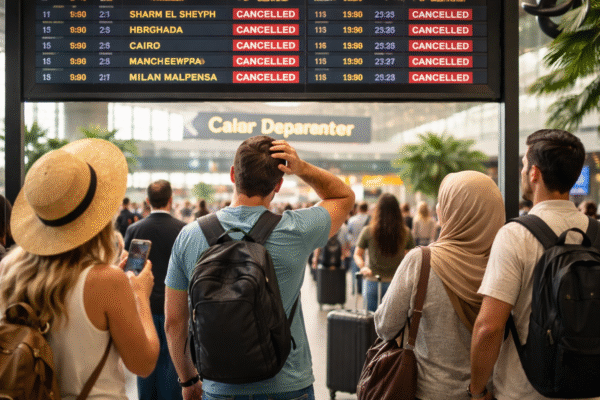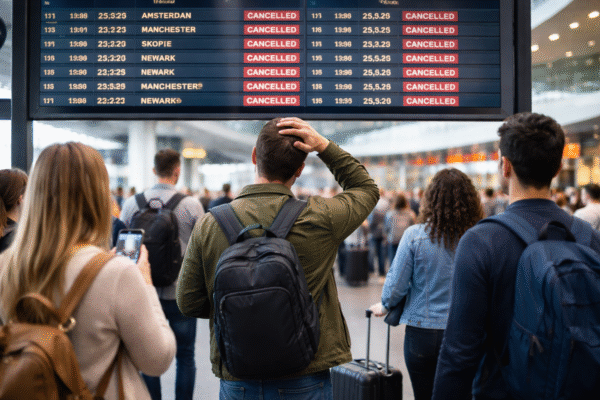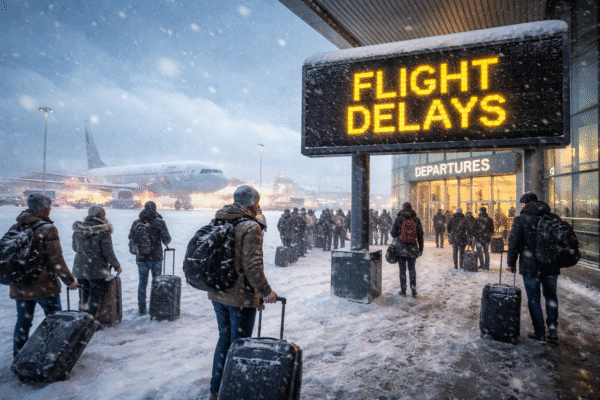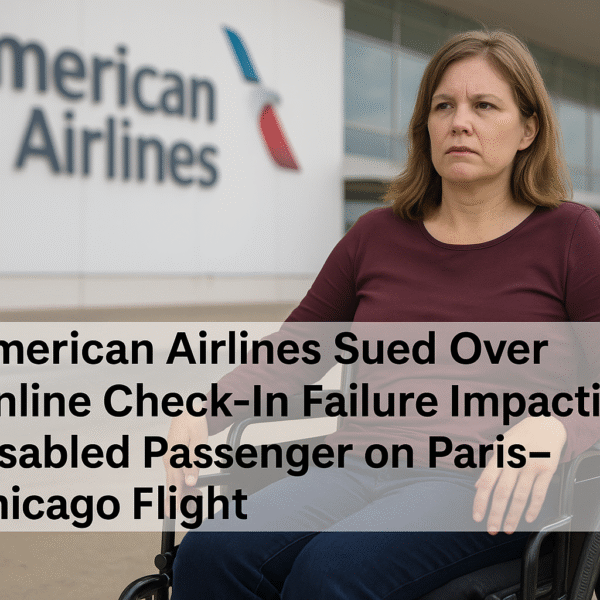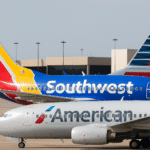In a landmark case that could shape the future of airline accessibility, Kelsey Brickl, an Illinois resident with severe mobility, cardiac, and neuromuscular disabilities, is suing American Airlines for $216,000 in damages. The lawsuit alleges that an online check-in system glitch prevented her from completing pre-flight boarding requirements for her July 22, 2025 flight from Paris Charles de Gaulle (CDG) to Chicago O’Hare International Airport (ORD), causing physical strain, emotional trauma, and disruption of essential medical routines.
The claim hinges on whether the airline violated provisions of the Montreal Convention—an international treaty regulating airline liability—by failing to provide accessible online services for disabled passengers. It also raises questions about compliance with U.S. Department of Transportation (DOT) disability regulations and the Air Carrier Access Act (ACAA).
The Incident: When Technology Fails Accessibility
Brickl, who requires pre-arranged disability assistance, attempted to check in online with her family. The system automatically assigned gender-specific titles such as “Mr” and “Miss” in ways inconsistent with passenger metadata. This triggered a lockout mechanism that barred completion of check-in, forcing the family to navigate busy CDG airport terminals for in-person processing.
The physical effort required reportedly caused Brickl severe fatigue and risked compromising her scheduled medical care. Compounding matters, American Airlines’ customer service informed her there was no immediate workaround, citing periodic unavailability of online check-in for some international routes.
Arrival in Chicago and Further Accessibility Failures
The lawsuit alleges that upon arrival at Chicago O’Hare, Brickl’s wheelchair was sent to baggage claim rather than being brought to the aircraft door—a direct violation of U.S. DOT regulations. This prevented her from deplaning independently and safely. Brickl refused to leave her seat until her wheelchair was delivered, citing her legal right to mobility equipment at the gate.
According to DOT’s 14 CFR Part 382 regulations, airlines must promptly return wheelchairs and assistive devices at the aircraft door whenever requested. Failure to comply can result in substantial penalties, as American Airlines experienced in October 2024, when it was fined $50 million for repeated disability service violations between 2019 and 2023.
Legal Context: The Montreal Convention & ACAA
The Montreal Convention (Article 17) allows passengers to seek compensation for injury or harm caused during boarding, in-flight, or disembarking. Brickl’s legal team argues that denying accessible online check-in—integral to her travel planning—constitutes a compensable failure under the treaty.
Domestically, the Air Carrier Access Act (ACAA) prohibits discrimination on the basis of disability in air travel and mandates equal access to services, including check-in systems. If successful, this case could set a precedent for treating online service failures as actionable accessibility violations.
Industry Implications: Digital Accessibility in Air Travel
While airlines must meet physical accessibility standards, digital accessibility—including mobile apps and online check-in portals—remains a gray area in global aviation law. The International Civil Aviation Organization (ICAO) has urged carriers to adopt Web Content Accessibility Guidelines (WCAG) for all passenger-facing technology.
Brickl’s case could accelerate this shift, requiring airlines to ensure that booking, check-in, and seat selection systems are usable by passengers with disabilities, without the need for extra assistance.
American Airlines’ Statement & Ongoing Concerns
American Airlines has acknowledged the incident but has not commented on pending litigation. The carrier stated that staff provided in-airport assistance and apologised to other passengers for related delays.
However, disability rights advocates, including the Paralyzed Veterans of America, argue that American Airlines’ track record shows a pattern of systemic accessibility failures, despite recent initiatives like automated wheelchair tracking.
A Broader Pattern in Aviation Accessibility Disputes
Brickl’s lawsuit is part of a broader trend of passenger rights litigation. In the past year, multiple complaints have emerged against major U.S. carriers for failing to meet DOT disability standards. Notably, a 2024 DOT audit found that over 30% of reported accessibility complaints involved check-in and boarding assistance issues.
For international travel, the lack of harmonized enforcement between U.S., EU, and ICAO regulations means passengers with disabilities often face inconsistent service quality depending on the airport and airline.
What This Means for Travelers with Disabilities
If Brickl prevails, the ruling could force airlines to:
- Guarantee fully accessible online check-in systems for all passengers.
- Increase staff training on accommodating digital and in-person accessibility needs.
- Enhance gate delivery protocols for mobility devices.
For travelers, it reinforces the importance of documenting accessibility issues, knowing their rights under the Montreal Convention, ACAA, and DOT regulations, and seeking legal recourse when necessary.
Conclusion: A Test Case for the Digital Era of Passenger Rights
The American Airlines vs. Kelsey Brickl lawsuit may reshape how airlines define accessibility in the digital age. As aviation technology advances, ensuring equal access to both physical and digital travel services is essential to meeting global disability rights standards.
If the courts side with Brickl, the precedent could compel airlines worldwide to overhaul their online platforms to meet accessibility laws—marking a major milestone in inclusive air travel.
For more travel news like this, keep reading Global Travel Wire





